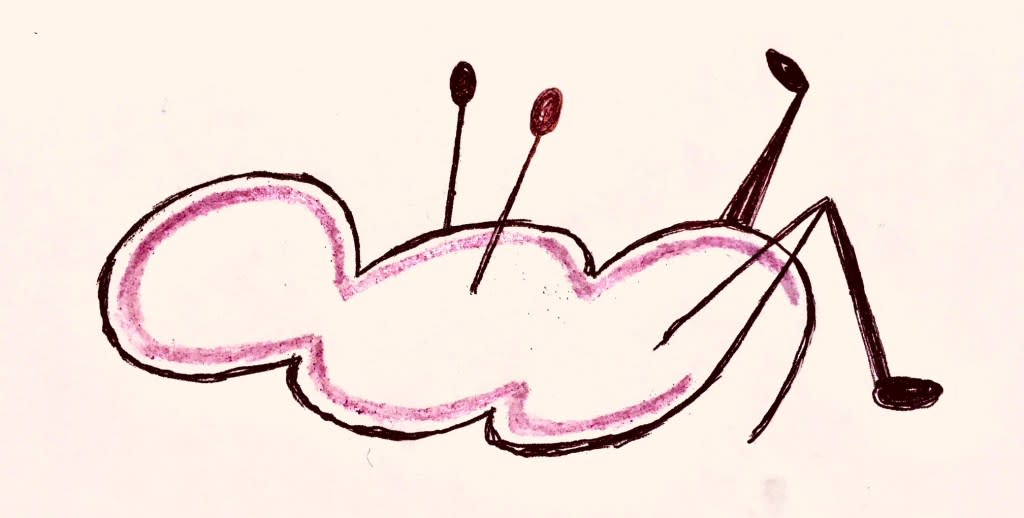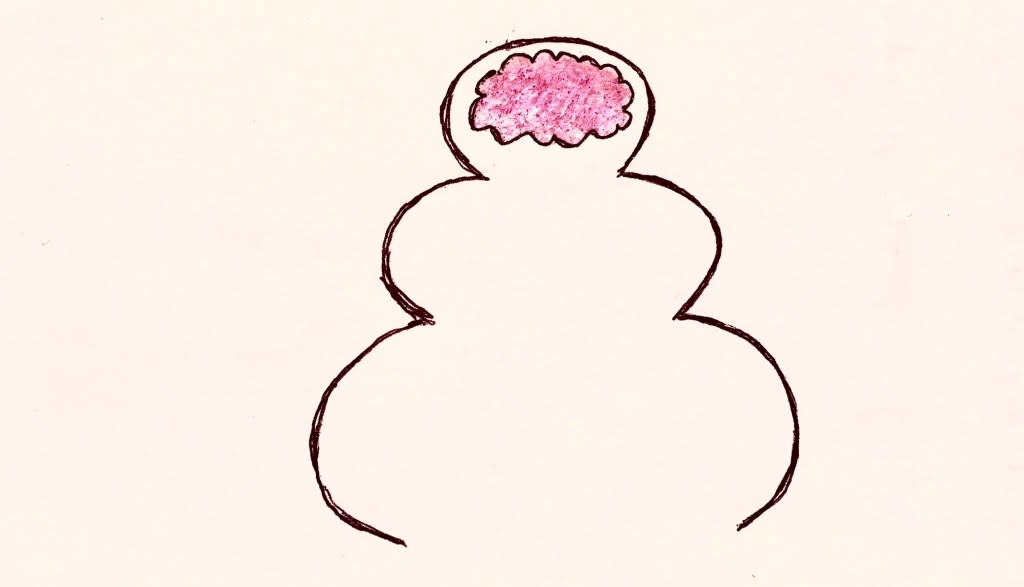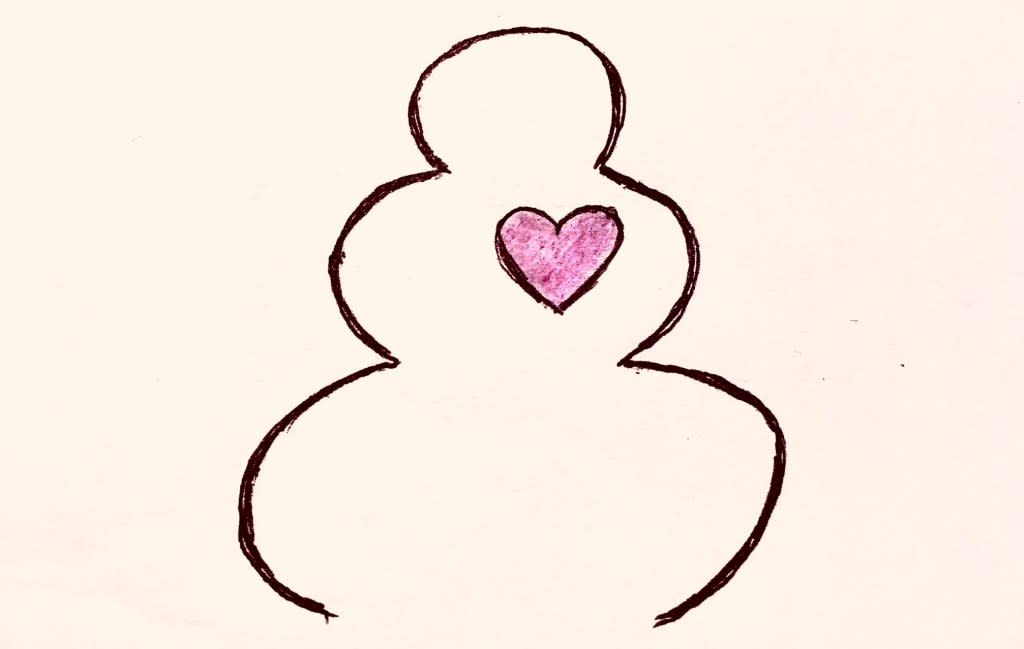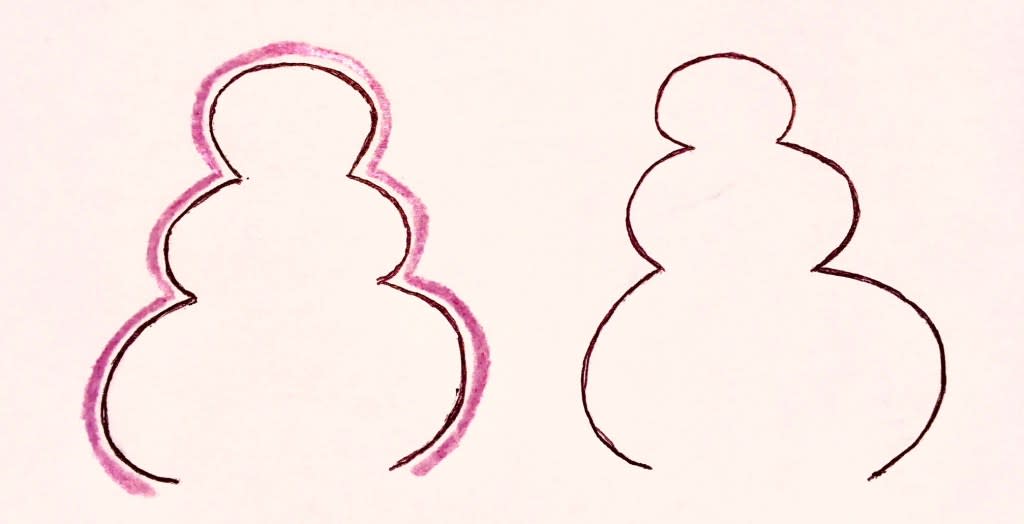How to Practice Physical, Mental, and Emotional Self-Care
I don’t know about you, but most of my life I was told that we are on this planet to serve others. And I suspect that, indeed, this might be one of the most noble endeavours available.
But I was also taught that serving others means putting my own needs somewhere towards the end of my priority list.
Where did this message come from? I am not entirely sure. Religious upbringing? Family? TV? Observing general societal patterns? Maybe a bit of everything.
What I remember vividly from my teenage years are some setups in which I felt “called to serve” and at the same time forgot about my needs.
Let’s say a sad friend of mine called in the middle of the night to cry into the phone. It only felt right to talk to her and try to cheer her up—at the same time neglecting my sleep. Or when I heard my parents fighting, I felt compelled to make things right between them—completely unaware that it was not my responsibility at all.
I was taught that serving others means putting my own needs somewhere towards the end of my priority list.
It took me years to realise what that “help” was really all about. I was trying to comfort myself by disguising it as “serving others”–because this is what I believed I was supposed to be doing. But, in reality, it was about me feeling better because of “having helped” a friend or my parents.
This showed me that if I attempt to serve others before I am well taken care of myself, most of my actions are subconsciously directed to satisfy my own needs.
And so I came to a conclusion: I can only serve others authentically after I have taken care of myself. Therefore, being good to myself and being good to others couldn’t be in contradiction anymore. Quite the opposite–all of a sudden, I saw that these are two sides of the same behaviour: Taking care of the whole, which starts with taking care of myself.
What is Self-Care?
Self-care is intending, planning, and actually taking the time to attend to your basic physical, mental, and emotional needs.
It is the conscious rest which helps you recharge your batteries. It is the time when you can be present and enjoy life through simple pleasures. It is your ability to stop, smile inwardly and ask yourself: “How are you doing today? What do you need?”–and then attend to those needs with a big dose of kindness and love.
Self-care happens on three levels: physical, mental and emotional.
Physical Self-Care

This aspect of self-care is the most straightforward one and it comes down to making sure that your body is well-nourished and happy.
Three most basic aspects of physical self-care are: good nutrition, sufficient amount of recovery time (rest and sleep), and necessary exercise.
Then you might have other ways to care for your body, depending on your preferences and state of health: long baths, massages, physiotherapy, breathing exercises, and so much more.
I like the metaphor that refers to body as your “real home," “temple” or “vehicle”–the only one you have throughout your entire life, and at the same time, the most intimate one to you.
Given the fact that you only have one body and that it is your means to do and experience absolutely anything in the world, you want to make sure it functions as well as possible.
This aspect of self-care is the most straightforward one and it comes down to making sure that your body is well-nourished and happy.
Mental Self-Care

Thoughts in our heads can be a mess—especially if we don’t notice them. There are times when we just drift away in our thoughts, usually the anxious ones, and after half an hour we cannot even tell what we have been thinking about. All we know is that we are left feeling discomfort… but why?
Mental self-care is a two-fold process for me.
The first step is taking time to consistently break down what I am thinking and why I am even thinking that. The moment I manage to notice my thoughts, they don’t have the power of directing my life without me even noticing.
The moment I manage to notice my thoughts, they don’t have the power of directing my life without me even noticing.
The second step is about cultivating those mental habits and thoughts which serve me. This can be done after I have observed my thought content for a while and I can tell which mental habits nurture my well-being, and which don’t.
This is not to say that I spend all my time analyzing my thoughts–heck no. I just pick moments throughout the day when I can notice—what is it that has been inhabiting my mind today?
These moments take place during morning meditation, but also when I wait in a queue to pay for my groceries, when I walk in the park or while I am on a train.
So… what do I notice?
A wide range of thoughts! Sometimes they are judgements directed at myself or other people. Sometimes it is self-indulgence. Sometimes, “what-if” scenarios. Or resentments, tossing and turning an event from the past. But I also find appreciative thoughts about what I have in the present moment.
Some mental habits are way more beneficial for you than other ones. Cultivating the beneficial ones is the second step of mental self-care.
I believe that this is what some Buddhist traditions refer to when they speak about creating more positive impressions in our minds. These “positive impressions” are, according to my experience, invited by such mental habits as:
●︎ Focusing your attention on the present moment
●︎ Practicing gratitude
●︎ Exercising patience over hurrying to “have things done”
●︎ Practicing acceptance of what is already happening
Emotional Self-Care

This has been, by far, the trickiest one for me. It might be because it is deeply imprinted in my view of the world that some emotions are “good” and others are “bad." I haven’t yet been able to let go of this belief completely.
An approach which helps me remember what it means to take care of my emotional well-being is the one Michael Brown presents it in his book The Presence Process. The foundation of this approach is that all emotions are essentially “energy in motion." They are not good or bad. They are just energy.
All emotions are essentially “energy in motion." They are not good or bad. They are just energy.
We perceive them as various physical resonances in our bodies—butterflies in the stomach, waves of heat or tingling in our palms. Additionally, we have come up with standardised names for these resonances–such as anger, anxiety, euphoria or fear. We ended up classifying some feelings as “desired” and other “unwanted." However, in the end, they can all be brought down to a sensation that we experience, and this sensation on its own cannot be a “right” or “wrong” way to feel.
From what I observed in myself and other people dealing with their feelings, there are two basic ways of approaching emotional self-care. What lies at the core of both of them, however, is recognizing the validity of your emotional state.
You undeniably benefit from accepting how you are feeling right now, because this is something that is already happening anyway. Any attempt to hide what you feel from yourself can only bring additional tension.
Any attempt to hide what you feel from yourself can only bring additional tension.
It is of course easier to accept some feelings over others. We usually don’t have a problem embracing the resonance of peace, excitement, happiness, love or gratitude. But we need to make a conscious effort to welcome sadness, anger, anxiety, impatience or regret.
Making this effort is, in my opinion, the absolute basics of emotional self-care.
Then, once you recognized and hopefully accepted how you are emotionally, there are two ways to go about it. You either try to alter you emotional state, or you don’t.
In the first case, you recognize your feelings and then decide to try to change them to your liking. For example, you might notice feeling “lonely” or “sad," but you don’t want to sit with this feeling. So you decide to change your circumstances in order to impact the way you feel. You look for friends’ company, go watch a movie, eat a brownie, and so on.
In the second case, you give unconditional attention to your feelings, without any attempt to alter them. This is what Michael Brown and many other practitioners recommend, as a more productive behavior in the long run.
By being fully aware of your emotions in the present moment and detaching from their mental interpretations (such as: “It is my partner’s fault that I feel angry, because he didn’t do what he had promised”), you gradually can get to the root of your feeling.
This means that you integrate it as a valid part of your experience–not better or worse from anything else in your life. Eventually, you no longer seek some feelings over others and you are able to accept them all as… energy in motion.
My choices as to which way to go with my emotional self-care differ from day to day, but however I choose to act, I try to make sure that I first acknowledge and give respect to the feeling that arised. It is a valid part of my experience–just like the fact that I have brown hair or that I was born in Poland.
However I choose to act, I try to make sure that I first acknowledge and give respect to the feeling that arised.
Names of feelings are just words, and the resonance is what is most important. However, many people report that it is easier for them to acknowledge how they feel if they can name it. If you think this approach might work for you, you can check out this list of names for feelings.
Self-Care Is Not Selfish

Just as our bodies are holistic, integral systems—so are human societies.
In everyday interactions, we influence each other—it is more than obvious. Each individual is a part of a bigger system: a family, circle of friends, work team, community. Well-being of those systems depends on the well-being of their parts.
Each individual is a part of a bigger system: a family, circle of friends, work team, community. Well-being of those systems depends on the well-being of their parts.
“If you want to change the world, start with yourself," they say. What does it mean in the context of self-care and well-being?
If you want your friends, family, and colleagues to be well—be the first to be well.
It can be challenging to accept at first, because the initial consequences of you putting more attention to self-care might seem to disturb your relationships.
For example: You choose a good night’s sleep over a party with your friends, and you may be afraid that they accuse you of neglecting your friendship. But you don’t have to act on this fear. True friends who care about you will stay in your life–even if they initially don’t understand what is going on and why you are doing what you are doing.
Same goes for family. You may choose to act against some of their expectations, because you found out that this is what’s best for you. They may initially be somewhat upset–especially if they got used to you always meeting those expectations before. Maybe they will feel that you are not giving them as much attention as before, because for 30 minutes a day you now choose to do something just for yourself.
But if you do it consistently and they see how it helps you find your balance, they will be happy for you. Plus, your company will be much more enjoyable for them.
The positive influence of self-care practices on yourself is undeniable. To notice its impact on others might take a bit more time. But if you continuously invest in time to nurture yourself, increased well-being of your peers is just a natural consequence.
Make it a daily habit to take care of yourself.
Even 10 minutes is enough. If you can make it 30, perfect. An hour—even better. But it doesn’t really matter how small your start. The most important is to start at all—preferably today.
Commit a part of each day to take care of your most burning needs. And stick to this commitment no matter what–because this is a long-term investment.
This article originally appeared on afoot
Read next: 11 Ways to Practice Self-Love Today

Shine is supported by members like you. When you buy through links on our site, we may earn an affiliate commission. See our affiliate disclosure for more info.

